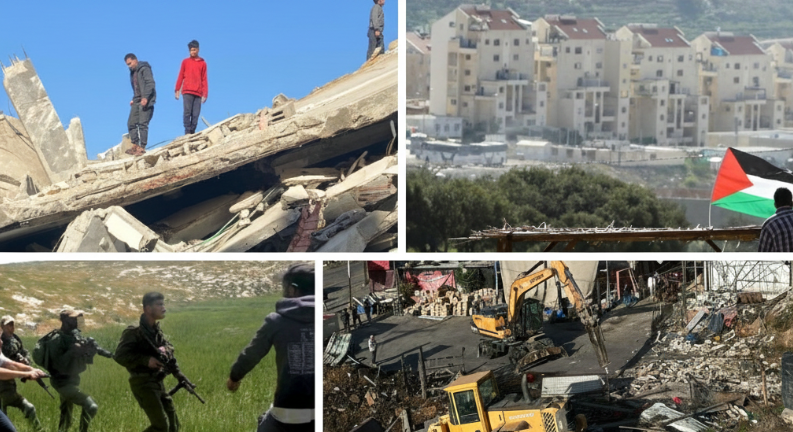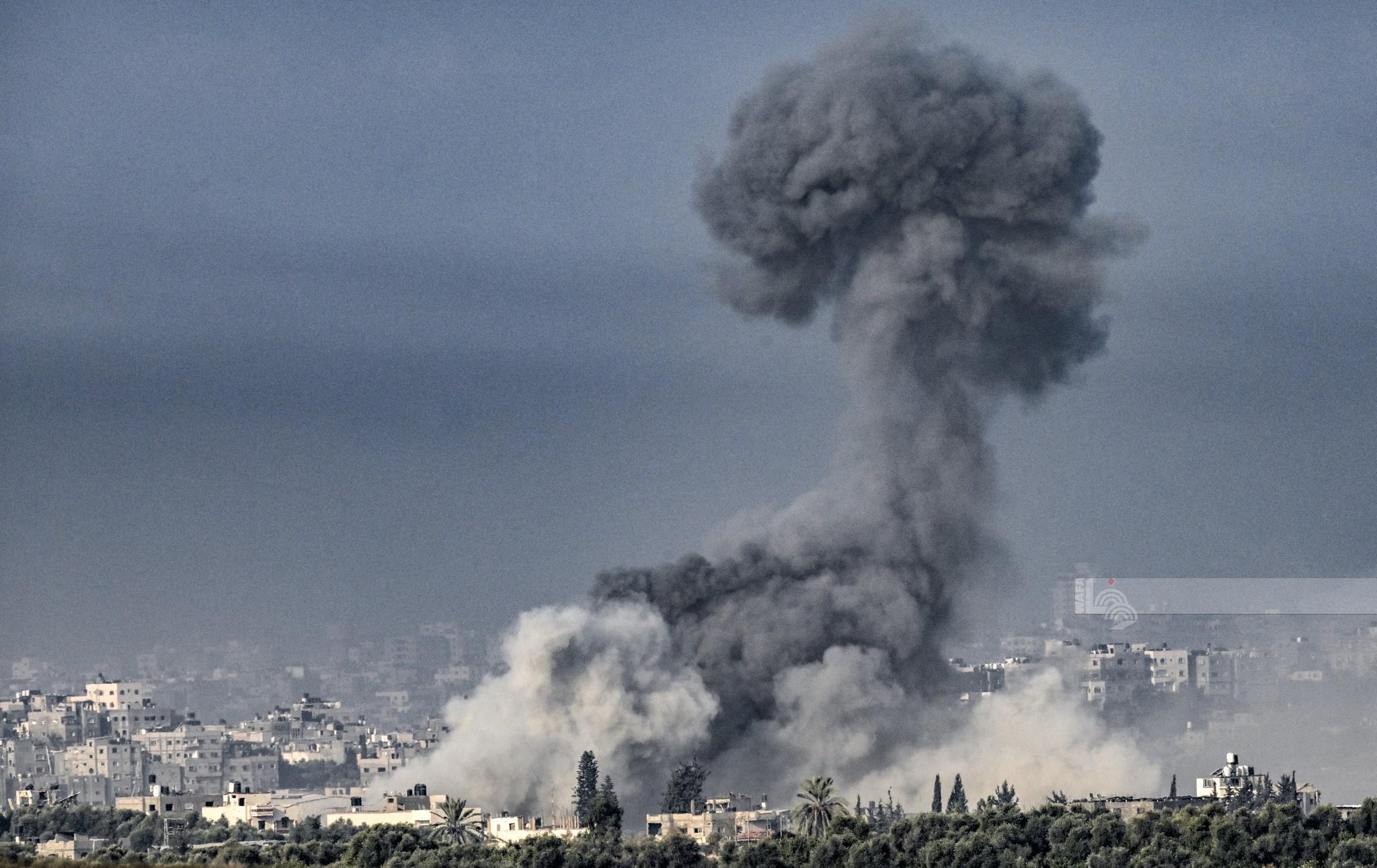JERUSALEM, Saturday, November 28, 2020 (WAFA) - On 25 November, citing the lack of building permits, the Israeli occupation authorities demolished 11 Palestinian-owned structures in Masafer Yatta area in the south of the West Bank, which included homes, livelihood-related structures and water and sanitation facilities, some of which had been previously provided as humanitarian assistance, according to the United Nations Office for the Coordination of Humanitarian Affairs (OCHA) in the occupied Palestinian territory.
Twenty-five people were displaced and over 700 were otherwise affected. All but one of the seven communities targeted are located in an area designated closed for military training, and are at risk of a forcible transfer, according to OCHA.
Prior to this vast demolition, and in the three-week period between 3 and 23 November, OCHA said in its Protection of Civilians in the Occupied Palestinian Territory report that a total of 41 structures were demolished or seized due to lack of Israeli-issued building permits, displacing 19 people and otherwise affecting over 1,200.
All the displacements and 37 of the structures targeted were in 15 communities in Area C, which makes over 60 percent of the area of the occupied West Bank, while the other four structures demolished were in occupied East Jerusalem.
OCHA also said that on 28 October, the Israeli occupation authorities cut a donor-funded pipe supplying water to 14 herding communities in Masafer Yatta, home to about 1,400 people, including over 600 children; among other consequences, this is expected to undermine hygiene practices and people’s ability to cope with the ongoing pandemic. Three structures were demolished in two of the 18 Bedouin communities in the Jerusalem governorate located within or nearby the E1 area, where settlement expansion is planned.
One home was demolished and a room in another home was sealed on punitive grounds, displacing 18 people, including 11 children, during the reporting period, said OCHA. The demolished house, in Rujeib village in the north of the West Bank, was home to a Palestinian accused of stabbing to death an Israeli man last August. The sealing was carried out in Yabad town, also in the north of the West Bank, at the home of a Palestinian charged for the killing of an Israeli soldier during a search-and-arrest operation last May.
The olive harvest season, which started on 7 October, continued to be disrupted by Israeli settlers, said OCHA. In nine incidents in the current reporting period, (compared with 19 in the previous reporting period), Palestinians were injured, trees were damaged and produce was stolen. Five of the incidents took place in the Nablus governorate, near Burin village, where two olive pickers were stoned and injured; olive produce and agricultural tools were stolen in Burin, Deir al Hatab, and Jalud; and a tractor used for the harvest was vandalized in Qaryut. About 130 olive trees were vandalized near Turmus Ayya, near Ramallah, and produce from about 200 others was stolen in Kafr Qaddum in the Qalqiliya area.
In numerous cases, the access of farmers to their olive groves in the closed area behind the separation barrier was impeded. Israeli forces delayed the opening of certain agricultural gates, and in some cases prevented farmers from crossing with vehicles, leading some to refrain from accessing their groves, many of which are located away from the gate.
Two additional settler-related incidents resulted in injury or damage, both in the Nablus governorate. A Palestinian man was injured when hit by a stone in clashes that erupted between Palestinians of ‘Asira al Qibliya and Israeli settlers who broke into their village; Israeli forces intervened by firing tear gas canisters at Palestinians. In the Palestinian village of al-Sawiya, settlers cut electricity poles and water pipelines.
Israeli forces carried out 161 search-and-arrest operations and arrested 126 Palestinians across the West Bank during the three-week reporting period, said OCHA. A total of 37 operations were recorded in East Jerusalem, followed by 23 in the Hebron district and 21 in the Tulkarm district.
M.K.










